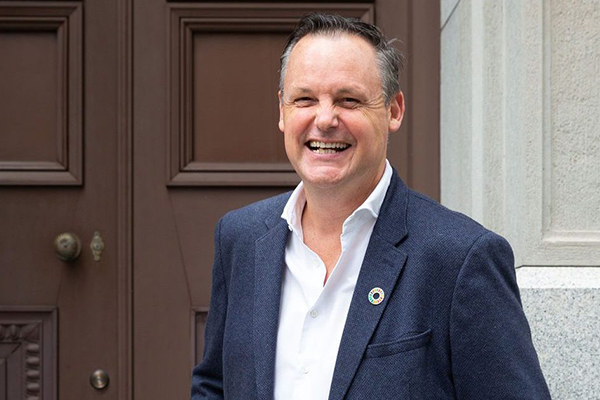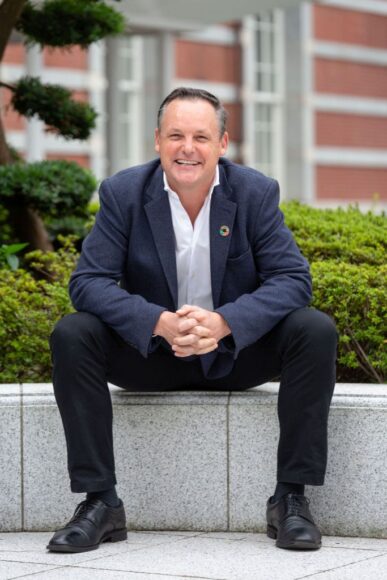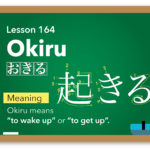
OCTOBER 2021 (VOL.168)

What do you do in Japan?
I am a Sustainability Consultant working with international and Japanese companies to transform their company culture to embed Sustainability mindsets and behaviors into company culture, to ensure personal, company, and societal sustainability into the future. We focus on people development rather than process creation, which allows us to take advantage of a very much ignored part of the Sustainability movement, and therefore we can make a more significant impact on people and organizations than many of the other companies operating in this industry.
What is the distinctive difference between your country and Japanese life?
In Australia, life is much more individual-focused. Particularly in business, the individual streak allows people to take more risks, be honest, and be more creative than what we experience here in Japan. That is sometimes a good thing, but sometimes people can be more selfish in the pursuit of their career rather than the benefit of the group they are working with.

What do you miss about your maternal country living in Japan?
Vegemite, Cricket, the surfing culture, and the beautiful waves and beaches that go with it. Most importantly I miss summer BBQs with my family, under beautiful sunsets, fueled by great wine and food and loads of laughter.
What do you find different about living in Japan over the term compared to when you first arrived or came as a tourist?
Mobile phones. I actually prefer the time before the Keitai. These days with google maps, translation apps, all the other information that mobile phones supply, I think takes away a lot of the adventure of life in Japan. I think they make people retract into the online world in that little box and stop us from looking up and engaging with the amazing world around us.
Which places in Japan do you recommend that foreigners see?
Shikoku – the great hidden secret of Japan. Beautiful food, amazing scenery, culture as best displayed in the Ohenro pilgrimage. The most amazing thing – space and no people. It’s amazing how quickly you can get away from the maddening crowds down there and you start to get an insight into what life might have been like in the past before the population became so big.
What parts of Japanese culture do you recommend that foreign people try to experience?
Definitely the onsen culture. It’s always hilarious when you get prudish friends from the UK, the US, or Australia who are afraid to walk around naked in a public bath. Once people get over that initial shyness it’s amazing how people relax not only in relation to their own body but with many other areas of Japanese culture that people feel are unusual or even scary. The first stop for people should always be an onsen to relax their body but more importantly their mind ready for the wonder that is Japanese culture.
Are there any aspects of the Japanese culture or its people that you find unique?
From a business perspective, the feat of failure is frustrating and fascinating. Of course, things slow down incredibly because people are so scared of failure but it’s also amazing how as a group particularly through the nemawashi process, individuals can dissipate and share that individual fear and finally move forward.
What are your favorite Japanese foods?
Anything involving pork. Having traveled all over the world I have still not found a culinary culture that uses pork in such delicious ways. This may be an unusual answer but I love the sauces and food combinations that you can find in regional areas with pork as the protein base of the meal.
Since moving to Japan, have you had any funny experiences?
The first time I met my in-laws, we had dinner at their house. My now-wife had warned them that I am a big man and so they actually put two chairs next to each other at the dinner table so that this ‘huge gaijin’ would be able to sit down. They were also worried that I might be too big for the Japanese toilet.

-150x150.png)


